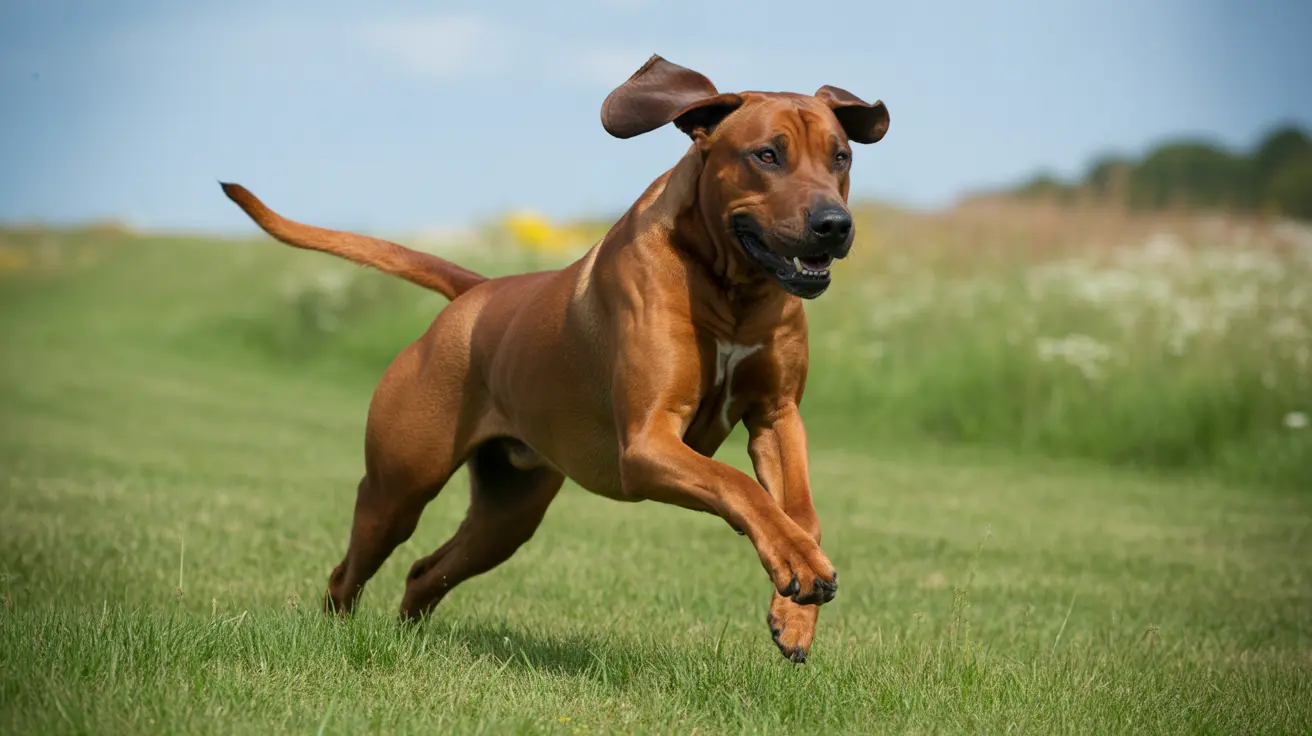Understanding the Rhodesian Ridgeback's Life Expectancy
Rhodesian Ridgebacks are magnificent dogs known for their distinctive ridge of backward-growing hair along their spine. These athletic and loyal companions typically enjoy a life span of 10-13 years, which is relatively standard for large dog breeds. Understanding their expected longevity and factors affecting it can help owners provide the best possible care for these remarkable dogs.
As former lion hunters bred in southern Africa, Rhodesian Ridgebacks have evolved to be resilient and hardy animals. However, their life span can be significantly influenced by various factors, including genetics, diet, exercise, and preventive healthcare measures.
Key Factors Affecting Your Ridgeback's Longevity
Genetics and Breeding
The genetic foundation of your Rhodesian Ridgeback plays a crucial role in determining their life span. Responsible breeding practices, including genetic health screenings for common conditions like hip dysplasia and dermoid sinus, can significantly impact a dog's long-term health prospects.
Nutrition and Weight Management
Proper nutrition is fundamental to extending your Ridgeback's life span. These large dogs require a balanced diet rich in high-quality proteins, healthy fats, and essential nutrients. Maintaining a healthy weight is particularly crucial, as obesity can lead to joint problems and other health complications that may shorten their life.
Exercise and Mental Stimulation
Regular physical activity is essential for maintaining your Ridgeback's health and extending their life span. These energetic dogs need daily exercise to maintain muscle tone, cardiovascular health, and mental well-being. Aim for at least 60 minutes of activity daily, including walks, runs, or supervised play sessions.
Common Health Issues That May Impact Life Span
Physical Health Concerns
Rhodesian Ridgebacks can be prone to several health conditions that may affect their longevity. These include:
- Hip and elbow dysplasia
- Dermoid sinus
- Gastric dilatation-volvulus (bloat)
- Degenerative myelopathy
- Hypothyroidism
Preventive Care Measures
Regular veterinary check-ups, appropriate vaccinations, and preventive treatments for parasites are essential for maintaining your Ridgeback's health. Early detection and management of health issues can significantly impact their life span and quality of life.
Maximizing Your Ridgeback's Years
Daily Care and Attention
Consistent, quality care makes a significant difference in your Ridgeback's longevity. This includes:
- Regular grooming and dental care
- Maintaining a consistent feeding schedule
- Providing fresh, clean water at all times
- Ensuring adequate rest and sleep
Environmental Considerations
Creating a safe, enriching environment helps support your Ridgeback's physical and mental health. This includes providing a comfortable sleeping area, protecting them from extreme weather conditions, and ensuring they have appropriate space for exercise and play.
Frequently Asked Questions
What is the average lifespan of a Rhodesian Ridgeback, and how can I extend their life?
Rhodesian Ridgebacks typically live 10-13 years. To extend their life, focus on regular veterinary care, proper nutrition, adequate exercise, and maintaining a healthy weight. Early detection and treatment of health issues can also significantly impact longevity.
How does diet and nutrition impact the lifespan of a Rhodesian Ridgeback?
Diet plays a crucial role in a Ridgeback's longevity. Feed high-quality, age-appropriate dog food, maintain portion control, and avoid overfeeding. Proper nutrition supports immune function, maintains healthy body weight, and helps prevent various health issues.
What are the most common health issues that affect the lifespan of Rhodesian Ridgebacks?
Common health issues include hip dysplasia, dermoid sinus, bloat, hypothyroidism, and degenerative myelopathy. Regular veterinary screenings and preventive care can help manage these conditions effectively.
How much exercise does a Rhodesian Ridgeback need to live a healthy life?
Rhodesian Ridgebacks need at least 60 minutes of daily exercise, including walks, runs, or active play. Regular exercise helps maintain healthy weight, muscle tone, and mental well-being, contributing to a longer life span.
What are some tips for maintaining a healthy weight in Rhodesian Ridgebacks to maximize their lifespan?
Maintain healthy weight through portion control, regular exercise, and avoiding table scraps. Monitor your dog's body condition regularly, and adjust food intake based on activity level and age. Consult your veterinarian for specific dietary recommendations.






